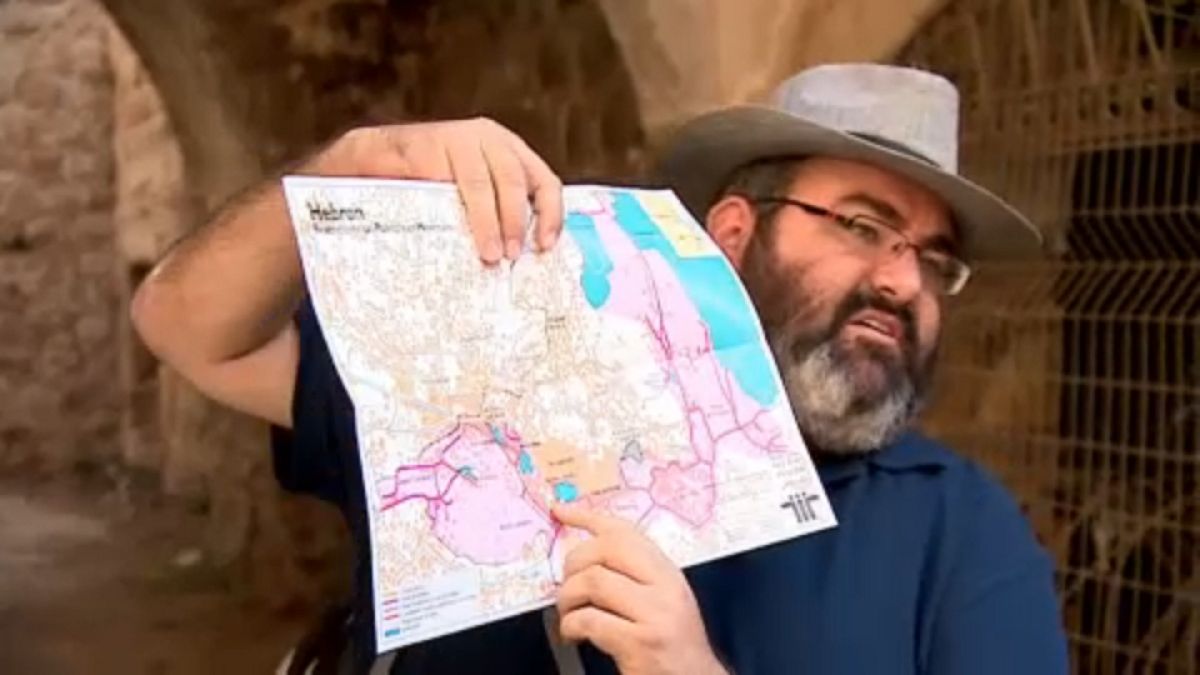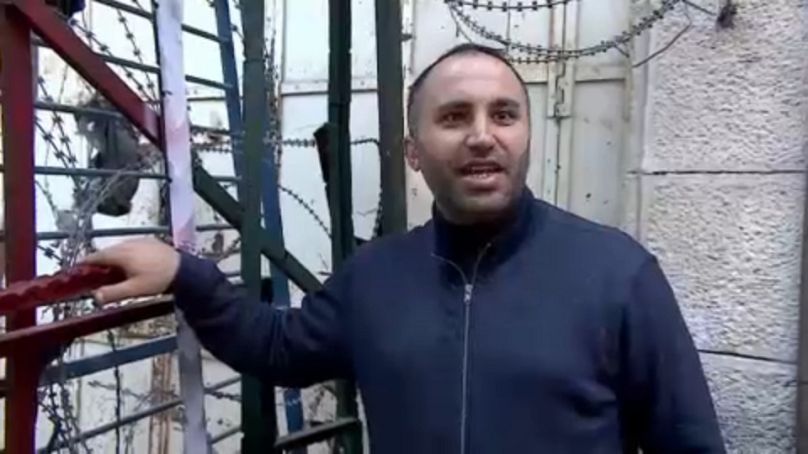The US administration announced, earlier this week, that it no longer considers Israeli settlements in the Palestinian territories as a violation of international law. Euronews gives a glimpse about the challenges created by a settlement in the Palestinian city of Hebron.
The US administration announced, earlier this week, that it no longer considers Israeli settlements in the Palestinian territories as a violation of international law, prompting criticism by the other members of the UN Security Council and by the EU External Policy Chief. Euronews gives a glimpse about the challenges created by a settlement in the Palestinian city of Hebron, visited recently by the correspondent Isabel Marques da Silva.
In the largest city in the West Bank, Hebron, the Jewish non governmental organization "Breaking the Silence", founded by Israeli veterans, organizes educational tours.
The guide shows the designated "sterilized streets" in the city’s old quarter. A place where only Jewish settlers can walk or drive.
The few Palestinians who still live here enter their houses from a backdoor or ladder to the roof. Cages on their windows protect them from stones.
The segregation concept
"The most important story in Hebron is the segregation concept. Look at the map. All the settlements are south of the old city, that is why all the gates leading in and out of the old city towards the south are blocked for Palestinians", explains Yehuda Sjaul, founder of "Breaking the Silence".
There are 650 soldiers protecting fewer than 1000 Jewish settlers, who live in the old quarter of the city with 200 thousand Palestinians.
The tour is not welcomed by settlers who argue they need security, but would prefer to coexist peacefully.
"We believe everyone should live in peace together, right? Remind that in South Africa there was apartheid, and in apartheid they used to teach that black people could not live with white people. And that was evil because we believe in peace and living together, right?", says one settler to his daughters when passing near the tour members.
On the other side of the checkpoint
After crossing a military checkpoint, the tour can continue with the Palestinian non governmental organization "Youth Against Settlements".
The guide is keen to raise public awareness about the disruption in daily life caused by the settlements policy.
"The Israeli army closed the market by military orders, the settlers occupied the rooftop and they are using it as a kindergarten, as an outpost, which is illegal according to the Israeli law. They broke into the shops, destroyed the decoration and burned the wood. Now they throw their rubbish down and they are occupying the rooftops", explains Issa Amro, founder of "Youth Against Settlements".
The two guides are friends and their tours attract tourists but also thousands of locals, especially university students.

